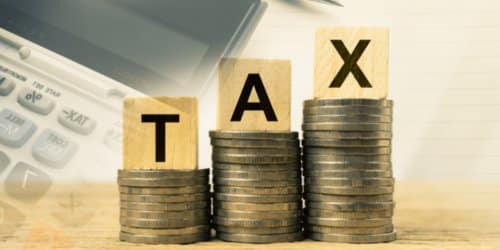When you earn money from your own small business, you must pay income taxes, even beginners, just as if you worked for another company. In some situations, you may also be required to pay additional taxes related to small business operations.
In this piece, we discussed why small business owners must pay taxes, the numerous sorts of taxes that a small business owner should be aware of, and how to get started and be ready for taxes when the time comes.
Why Does My Business Have to Pay Taxes?
According to studies, about 80% of small and micro enterprises in Nigeria avoid paying taxes, a condition that the government has tried to correct over the years.
While business owners frequently question why they should contribute to a government that appears to place regular roadblocks in their path, taxation is unavoidable, with penalties that affect enterprises when they are discovered dodging tax.
Business taxation is the tax paid to the government by businesses as part of their activities. Every business, whether it is a sole proprietorship, partnership, limited liability company, or corporation, must pay taxes. Your business is responsible for adhering to the country’s tax legislation.
As long as your business is registered, you must pay the government a percentage of your profits. In order to calculate the necessary taxes to pay, businesses, whether small or micro, must determine which taxes apply to the business in which they are involved.
Each tax has a percentage associated with it, so how much a business generates in a year can also decide how much to send to the government. Also, because the Finance Act exempts some micro-businesses from some taxes, you must understand which taxes must be paid, how much they are, and the penalties for late payment.
Types of Taxes for Small Businesses in Nigeria
The first thing a business must do is create its accounts for the fiscal year and obtain an audited financial statement.
The automation of the tax filing system has made it easier for businesses to file taxes over time, as they may now log onto the websites of the federal or, in certain cases, state revenue agencies to file their taxes.
Businesses must supply all documentation required to file their tax returns, including the CAC document, directors’ statements, and a fully completed Type C form. Following the submission of the proper papers, the sum must be paid to any banks designated for tax collection. Here are some of the taxes that businesses are required to file:
#1. Capital Gains Tax
This is a 10% tax imposed on Capital Gains deriving from the sale, exchange, or other disposal of chargeable assets. Capital gains are the profits realized by an investor when he or she sells a capital asset for a price greater than the purchase price. Capital gains taxes are only levied when an asset is sold or realized.
#2. Education tax
This is a tax levied on all Nigerian firms with taxable profits as contributions to the Education Tax Fund. Every registered company in Nigeria is expected to contribute a percentage of their assessable profit to the Education Tax Fund. The tax is charged at a rate of 2%.
#3. Value-Added Tax
This is a 7.5 per cent tax that the purchaser must pay. It is a tax levied on the provision of goods and services. Although businesses do not pay VAT, the government requires them to collect it from customers and remit it to the appropriate tax body. In essence, the business acts as an agent for the government in order to collect VAT.
#4. Personal Income Tax
Individuals, registered firms, and partnerships must pay this tax, with the exception of those registered under Part A of the Corporations and Allied Matters Act 1990 (incorporated corporations). The tax is administered by the State Inland Revenue Service. Even if you are a registered company, this tax is relevant to your business because one of the tasks of firms is to collect Pay as You Earn (PAYE) from their employee’s paychecks and remit it to the state tax body.
#5. Withholding Tax
This is an advance payment of income tax deducted at the time of the transaction. The income recipient may apply the withheld tax credit note or receipt against his or her ultimate tax liabilities. For example, when dividends are paid, withholding tax is levied on the amount.
#6. Companies Income Tax
This is a tax levied on all firms registered in Nigeria that are not engaged in petroleum operations. It is a yearly tax on registered firms’ profits, which must accrue in, be derived from, brought into, or received in Nigeria. Companies with annual gross sales of less than N25 million, on the other hand, would be fully exempt from paying CIT if their income tax filings were filed on time.
Reasons for a Low or Zero Tax Compliance
Let us look at some of the reasons why small business owners and beginners fail to pay their taxes:
#1. Complexity
Taxation has allegedly become easier over the years due to digitization and Remita, yet despite these simplifications, several issues continue to obstruct the taxpayer’s experience. The potential taxpayer fills out documents and then brings them to the bank, where there is typically a network/internet-related issue with accessing the Remita platform.
According to the same survey, regardless of the digital means of remittance, the desire for cheques has grown over time. This is one good reason why beginners fail to pay their taxes as small business owners.
#2. Cost
Tax compliance is a relatively inexpensive endeavour, but many firms are unaware of this and cannot relate to the expense. To file taxes, you may be charged between 20,000 and 30,000 each month; a reasonable cost, but one that some small enterprises may be unable to afford.
This fee is for a minor tax compliance procedure; if a serious tax-related snafu occurs, an external auditor will be required to mediate with the government. Obtaining something is prohibitively expensive, depending on the amount involved. Most times the defaulters take this as a good reason why beginners fail to pay their taxes as small business owners.
All of these recurring expenses can be difficult to fit into a budget for a small business that generates zero to limited revenue and runs lean.
#3. Ignorance
There are numerous issues that fall under this category; one of the primary reasons small firms in Nigeria do not pay taxes is a lack of information. Ninety per cent of the startup and small business owners polled had no idea what taxing entailed for them.
#4. Unpatriotism
Nonpayment of taxes can be attributed to a lack of civic responsibility. A startup founder stated emphatically that he is unable to submit a single penny to the Nigerian government since, in his view, the government has done nothing for him or his country. This is also one good reason why beginners fail to pay their taxes as small business owners.
This dismisses the notion that the government cannot do something for everyone; even the initiatives that will be carried out will be funded directly from the taxpayers’ pockets. Non-payment of taxes, on the other hand, is against the law in any country, and it is not desirable to begin a business career on the wrong side of the law.
Penalties for Defaulting on Tax
There are many penalties for failing to pay taxes either as beginners or not, in a small business; each tax dodged carries its own punishment. In general, under Section 66 of the Companies Income Tax Act of the Federal Inland Revenue Service, tax collectors have the authority to seize/auction off the products and even the premises of defaulting taxpayers in order to recover amounts owing.
As a result, it is absolutely permissible for the authorities to seize assets if taxes are not paid on time; it is the law.
Section 40 of the Federal Inland Revenue Service Act of 2006 addresses ‘failure to deduct or remit tax’ and stipulates that;
Any person who is obliged to deduct any tax under this Act or the laws listed in the First Schedule to this Act, but fails to deduct, or having deducted fails to pay to the Service within 30 days from the date the amount was deducted or the time the duty to deduct arose, commits an offence, and upon conviction be liable to pay the tax withheld or not remitted in addition to a penalty if 10 per cent of the tax withheld or not remitted per annum at the prevailing Central Bank of Nigeria minimum re-discount rate and imprisonment for a period of more than 3 years.
How Small Businesses are Taxed in Nigeria?
SMEs in Nigeria must pay Personal Income Tax, Value Added Tax, and Withholding Tax. Previously, they were liable to Company Income Tax; however, this has altered as a result of a Finance Act 2019[5] provision that exempts small enterprises from paying tax.
Do Small Companies Pay Minimum Tax in Nigeria?
Companies that have no taxable profits for the year or whose tax on profits is less than the minimum tax must pay the minimum tax. Companies in their first four calendar years of operation, agricultural businesses, and small businesses, on the other hand, are free from the minimum tax.
When Should a Business Start Paying Tax in Nigeria?
Within eighteen (18) months of the date of incorporation or no later than six (6) months after the conclusion of its accounting period, whichever is earlier.
Do Small Companies Pay VAT in Nigeria?
Small businesses in Nigeria are required to file and remit Value Added Tax (VAT) collected on sales of goods and services if they are properly registered with the Corporate Affairs Commission. The Federal Inland Revenue Service (FIRS) administers and collects Value Added Tax (VAT).
How Much is Tax for a Business Name?
Every Business Name owner in Nigeria is charged the following tax rate: If your income is less than N 300,000, the minimum tax rate has been raised from 0.5% to 1%.
Does a Company Owner Pay Tax?
Business taxation is the tax paid to the government by businesses as part of their activities. Every business, whether it is a sole proprietorship, partnership, limited liability company, or corporation, must pay taxes.
Do SMEs Pay Tax in Nigeria?
Personal Income Tax- For each year of assessment, all small business owners are required to pay their personal income tax, which is governed by the Personal Income Tax Act (Cap P8 LFN 2004), from their source of income for the year, which also includes the profit made in the small business.
Who is Eligible to Pay Tax in Nigeria?
The payment of taxes is one of the civic duties of every country’s residents. As a Nigerian citizen, you are expected to pay taxes. Furthermore, citizens, individuals, and organizations doing business in Nigeria must pay taxes.
Conclusion
Do you have any questions about taxes? The majority of people are baffled by their personal tax filings, let alone the more complex returns required of businesses. If you are unsure about your capacity to understand the requirements and accurately prepare returns and compute payments, it is worthwhile to engage an accountant.
The time you save dealing with tax difficulties will allow you to focus on your business. The experience of an accountant may also help you avoid tax penalties, so the cost of employing this professional may end up paying for itself.
If you don’t want to be reliant on an accountant or pay their bills in perpetuity, you can shift to paying your own taxes by completing some tax preparation classes, employing a Financial Expert/CFO, or using the FIRS Tax Calculator.
Related Articles
- WHAT IS GROSS WAGES: Definition, Examples & How to Calculate It
- W-4 vs W-2: What Is the Difference
- WAGE ASSIGNMENT: Does an Employer Have to Honor a Wage Assignment?
- INVESTING FOR BEGINNERS: Best Easy Guide in 2023
- BEGINNER SKILLS FOR RESUME: 15 Top Skills, Tips & All You Need !!!






